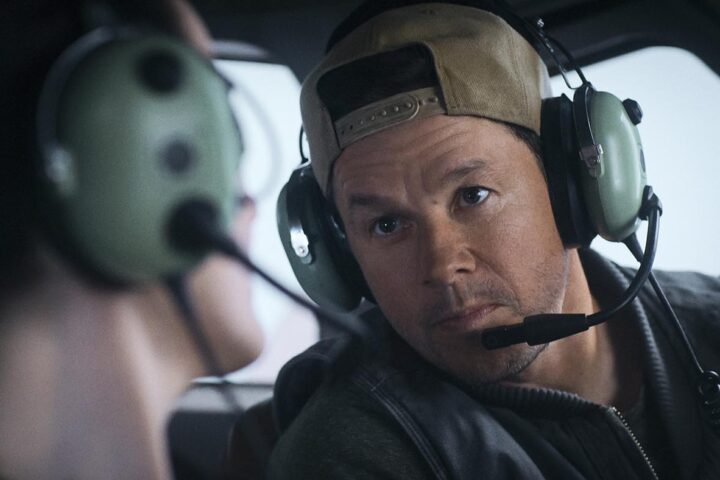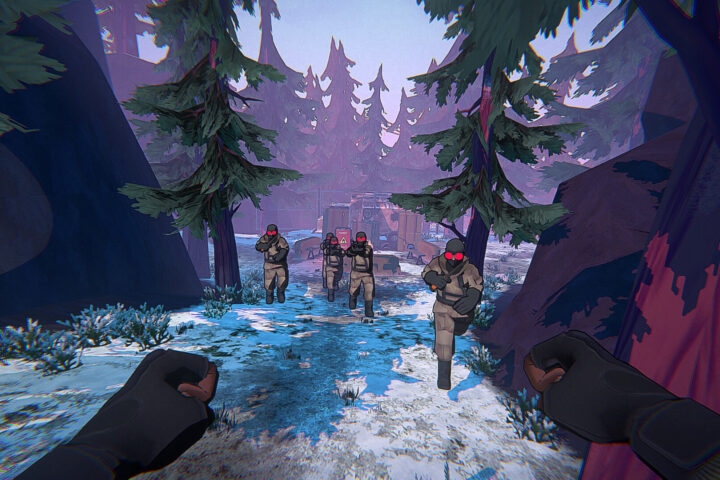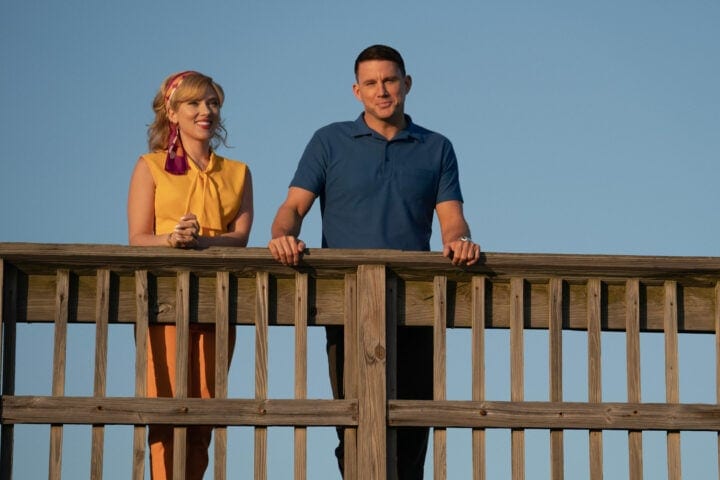The first entry in the John Wick extended universe begins with a long-haired man in a black suit blasting his way through the hallways of a New York City hotel. At first, it’s comforting to return to such familiar territory, but it soon becomes clear that while the name above the door might still say “The Continental,” this isn’t the luxuriously styled, endlessly idiosyncratic world we’ve come to know from the four John Wick films. Rather, The Continental is the equivalent of a budget hotel: cheap, charmless, and generic.
In the Peacock series, the man in the suit isn’t Keanu Reeves’s John Wick, but a new character named Frankie Scott (Ben Robson). He concludes his one-man assault on the Continental by disappearing into the night with an invaluable piece of hotel property, much to the chagrin of manager Cormac (Mel Gibson), a keyed-up psychopath with a penchant for religious allusions and grating wordplay. Cormac enlists the thief’s younger brother, Winston Scott (Colin Woodell), to track him down, bringing us to the raison d’etre of this three-episode prequel: the tale of how Winston became the drole and dapper kingpin of the films.
There are certainly shades of the John Wick films to the frenetic fight scene that opens the first episode, with Frankie finding an endless array of new ways to combine grapples and gunshots. The rest of the show provides a couple of other enjoyably inventive action moments—with a chaotic fight inside a telephone box a particular highlight—but most of its melees are unimaginative affairs, relying on shaky-cam and rapid cuts to provide the thrills. It’s a long way from the intricately choreographed and captured fights of the movies.
The show also struggles to recapture the rich aesthetics of the films’ world. The suits aren’t as sharp, the interiors aren’t as luxurious, and the streets surrounding the hotel are filled with lifeless digital backgrounds. Where once every object, setting, and item of clothing in John Wick’s world was deliciously tactile and precisely tailored, here it all feels distinctly off the rack.
As The Continental traces Frankie’s story, we learn that he fought in Vietnam and meet some of his former brothers-in-arms, along with the woman he fell in love with, Yen (Nhung Kate). Another plot strand follows KD (Mishel Prada), the police detective hell-bent on finding Frankie, while yet another charts the tensions between the Black and Chinese populations of ’70s New York. These historical events simply don’t gel with the off-kilter alternate reality of the John Wick universe, a place that allows assassins to stage knife fights in plain sight and where cops can be waved away with a friendly word and an ornate gold coin.
A spin-off is under no obligation to be faithful to the tone and style of its predecessors. Last year’s Andor provides an example of the rich new territory that can be mined by the brand extension of a popular franchise. But it’s hard to imagine a less interesting place to take the John Wick series than the generically grim, reality-bound world that The Continental finds itself in.
The inclusion of drugs and sex seems like an attempt to position the series as a gritty, grown-up piece of television, as does the decision to show innocent bystanders being killed while characters fight. These are all things that were conspicuously omitted from the films, and this fiercely maintained sense of decorum was vital to their particular brand of humor: A juxtaposition between brutal violence and gentlemanly manners made even the bloodiest encounters feel almost like Buster Keaton gags. The Continental, though, swaps out this deadpan humor for self-aware bantering about things like Winston’s kravat.
The John Wick universe is a semi-mystical, almost mythic place: laced with symbolism, governed more by ritual than definitive rules, and short on a purposeful sense of logic. It’s no accident that the hotel’s concierge, Charron (Lance Reddick’s character from the films, played here by Ayomide Adegun), is named for the ferryman of the dead. This is a world in which characters can be fully defined by job roles that take on an almost religious significance, their entire characterization delivered in a few broad strokes. Reddick told us more about who Charron was with one arched eyebrow than The Continental does across four-and-a-half hours.
The fact that these characters have been so boldly drawn on the big screen also leaves the actors playing their youngers selves fighting an uphill battle. Woodell and Adegun do their best to imitate the mannerisms of the actors who played their characters in the films, but Reddick and Ian McShane cast long shadows that Woodell and Adegun are never truly able to escape from.
There’s a point in John Wick: Chapter 3 – Parabellum where Wick is offered the choice between a death sentence and a life of servitude. His story could have ended there or it could have dragged along through empty repetition as he shot his way through one meaningless gunfight after another until someone finally managed to retire him. Being John Wick, our hero found a way between these miserable alternatives. Unfortunately, The Continental doesn’t.
Since 2001, we've brought you uncompromising, candid takes on the world of film, music, television, video games, theater, and more. Independently owned and operated publications like Slant have been hit hard in recent years, but we’re committed to keeping our content free and accessible—meaning no paywalls or fees.
If you like what we do, please consider subscribing to our Patreon or making a donation.




